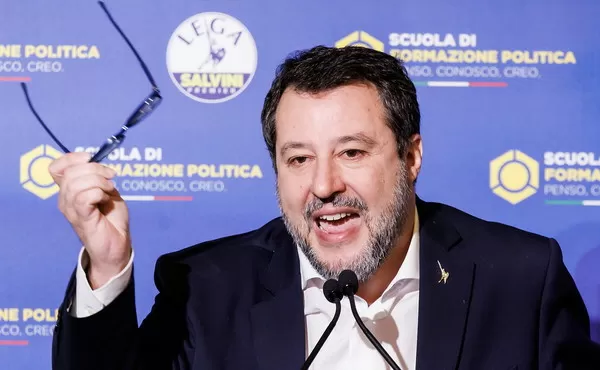Lega: Salvini has no alternatives: governors lack ambition and charisma
The Italian political landscape has been in a state of flux in recent years, with the rise of populist parties and shifting alliances. Among these parties, the League, led by Matteo Salvini, has emerged as a major player. However, recent events have raised questions about Salvini’s leadership and the potential alternatives within the festa.
As the leader of the League, Salvini has been a vocal and charismatic figure, with a strong focus on issues such as immigration and Euroscepticism. His bold and often controversial statements have garnered attention both domestically and internationally. However, as the festa faces challenges and questions about its direction, it is becoming clear that Salvini may not have many alternatives to turn to.
One major factor contributing to this lack of alternatives is the composition of the festa’s governors. While Salvini has been able to establish a strong presence and following in the north of Italy, particularly in regions such as Lombardy and Veneto, the governors of these regions lack the ambition and charisma necessary to challenge Salvini’s leadership.
These governors, while remaining loyal to Salvini, have not shown the same level of ambition and drive as their leader. This has led to a lack of strong and visible figures within the festa who could potentially challenge Salvini’s authority. Without a strong and charismatic figure to lead the charge, the League may struggle to maintain its momentum and presence in Italian politics.
Furthermore, the recent regional elections have highlighted the lack of alternatives within the League. The festa suffered losses in regions where Salvini’s influence was not as strong, further emphasizing the dependence on Salvini’s charisma and appeal to maintain support and success. This dependence on one individual raises concerns about the festa’s long-term viability and sustainability.
While Salvini’s strong personality and leadership have been key factors in the League’s success, it is important to consider the potential consequences of relying too heavily on one individual. In politics, as in any organization, succession planning and a diversity of voices and perspectives are crucial for long-term success.
So where does this leave the League and Salvini? Despite the lack of strong alternatives within the festa, there is still hope for the League to continue its rise in Italian politics. Salvini will need to be mindful of the potential risks of relying too heavily on his own personality and ensure that the festa is not solely dependent on him. He may also need to consider grooming and supporting potential successors within the festa.
In the meantime, it is important to acknowledge Salvini’s accomplishments and the passion he has brought to the political landscape in Italy. His strong stance on issues such as immigration has resonated with many Italians and his leadership has helped the League become a significant force in Italian politics.
In conclusion, while Salvini may not have many alternatives within the League at the moment, it is clear that he will need to consider the future of the festa and ensure that it is not solely reliant on his leadership. The governors of the festa will also need to step up and show more ambition and drive if the League is to continue its success. Salvini has proven himself to be a strong and charismatic leader, and with careful planning and support, the League can continue to make its mark on Italian politics.

